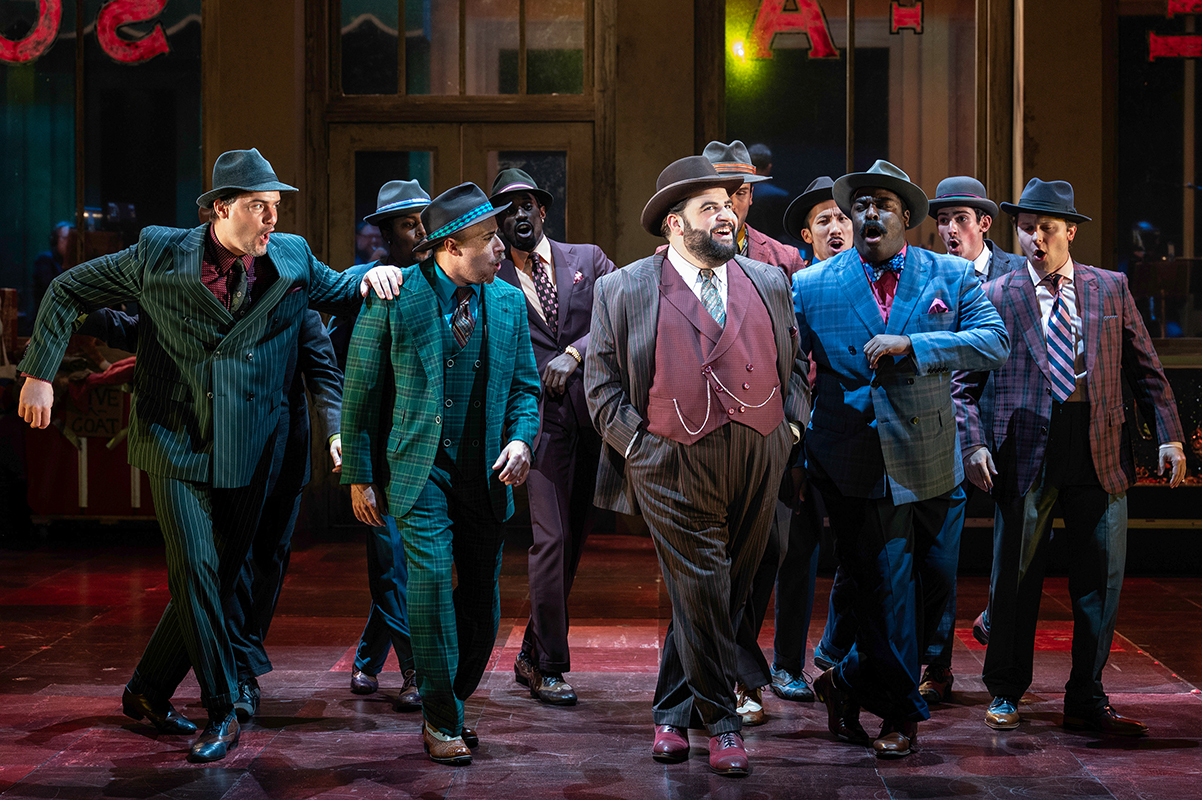Ragtime Review: Lincoln Center Revival Is a Stirring Triumph
Lincoln Center’s Ragtime revival dazzles with powerhouse vocals and a timely take on race, class, and the American Dream.

Given how often today’s news outlets distort the truth or report outright lies, it’s almost comical that E.L. Doctorow’s 1975 novel Ragtime was once dismissed by The New Yorker‘s editor William Shawn. Because Doctorow’s tale, set in the early twentieth century, wove real historical figures into fictional lives, Shawn refused to publish a full-length review, calling the book “immoral.”
Now, the musical adaptation returns with forceful, spectacular splendor at Lincoln Center’s Vivian Beaumont Theatre. And this second revival of the beloved story arrives on Broadway at just the right time.
The show originally premiered in Toronto in 1996. A year later, it moved to Broadway, where it enjoyed a two-year run. (The production’s demise, caused by an unscrupulous producer, was its own fascinating drama.) America was prosperous and unemployment was low. In 2009, another great moment for U.S. economic prosperity and progressive ideals, Ragtime was revived. This time, however, it flopped after running for less than two months.
Ragtime premiered in Toronto in 1996 and moved to Broadway a year later, where it enjoyed a two-year run. (Its demise, brought on by an unscrupulous producer, is its own fascinating drama.) At the time, America was prosperous and unemployment was low. In 2009 — another period of economic growth and progressive optimism — Ragtime returned to Broadway, this time flopping. It closed after less than two months.
Tony-nominated director Lear deBessonet, along with a team of savvy producers, fast-tracked another revival after Ragtime earned rave reviews as part of the New York City Center Encores! series last year, on the cusp of the presidential election. Back then, everything felt more hopeful.
Ragtime is the sweeping story of three intersecting worlds: Jewish immigrants striving to build new lives, Black residents of Harlem introducing a bold new musical sound while confronting racism, and an affluent white family in New Rochelle whose patriarch makes his living manufacturing fireworks. In unexpected ways, their lives intertwine and transform one another.
Several elements make Ragtime the enduring modern classic it is. Terrence McNally’s book beautifully captures the spectrum of human emotion in all its complexity and contradiction. Rarely do so many characters in one story experience such plausible, relatable, and transformative arcs.
Early on, Mother (Caissie Levy) expresses her sense of safety and protection under her husband, Father (Colin Donnell). While he embarks on an expedition, she busies herself with domestic routines, scarcely considering her own path. By the end, she finds her own voice in a stirring anthem: “There was a time when you were the person in motion / I was your wife, it never occurred to want more / You were my sky, my moon and my stars and my ocean / We can never go back to before.”
Joshua Henry has long proven himself one of the finest talents on the contemporary stage, and the role of Coalhouse Walker feels custom-built for his powerhouse voice and commanding presence. Walker is an upstanding musician — a player in more ways than one — who learns from his mistakes and strives to make them right, even as racist forces conspire against him. Vocally, Henry has never sounded better, which leads to another reason this Ragtime triumphs so magnificently.
Composer Stephen Flaherty and lyricist Lynn Ahrens have crafted one of the most glorious scores in modern musical theater. Every number pulses with heart and passion, making it nearly impossible not to be moved. Under deBessonet’s direction, there isn’t a weak link in the cast. Ragtime has been staged often, but rarely with a company that both sounds and acts this superbly. However, David Korins’ sparse set — including a simple stencil drop for what should be a grand New Rochelle home — fails to match the show’s inherent grandeur.
While Ragtime conveys a stirring sense of pride and patriotism, it never drifts into nationalism. Instead, it exposes an America that was — and remains — imperfect, deeply flawed, and unjust for far too many, native-born and immigrant alike. Yet it also carries an undying yearning for better days and faith that the “American Dream” remains within reach. That message of hope is a welcome balm against the ugliness of today’s politics.
Ragtime (★★★★☆) has been extended through June 14, 2026, at Lincoln Center Theatre, 150 West 65th St. Tickets are $196 to $401. Visit lct.org/shows/ragtime.
Support Metro Weekly’s Journalism
These are challenging times for news organizations. And yet it’s crucial we stay active and provide vital resources and information to both our local readers and the world. So won’t you please take a moment and consider supporting Metro Weekly with a membership? For as little as $5 a month, you can help ensure Metro Weekly magazine and MetroWeekly.com remain free, viable resources as we provide the best, most diverse, culturally-resonant LGBTQ coverage in both the D.C. region and around the world. Memberships come with exclusive perks and discounts, your own personal digital delivery of each week’s magazine (and an archive), access to our Member's Lounge when it launches this fall, and exclusive members-only items like Metro Weekly Membership Mugs and Tote Bags! Check out all our membership levels here and please join us today!



























You must be logged in to post a comment.